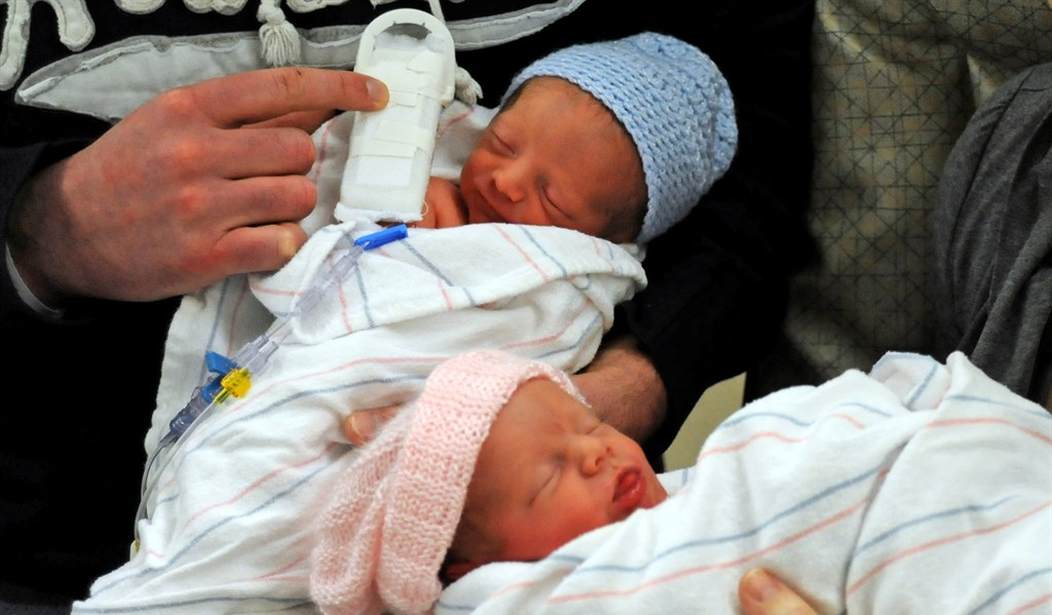It’s the common feminist narrative: moms want someone else to take care of their kids because child care is not nearly as rewarding as paid work. Housework and child care are mindless drudgery, and women want out.
Don’t you believe it.
New data released by Pew researchers shows that parents—both moms and dads—described “62% of their child care experiences” as “very meaningful.” In contrast, parents described just 36% of work activity as “very meaningful.” (The Pew report, “Parents’ Time with Kids More Rewarding Than Paid Work—and More Exhausting,” is based on time-use studies that include accompanying measures of happiness, satisfaction, and wellbeing.)
It turns out that much of what we do at our jobs is a whole lot less meaningful, to most of us, than the time we spend with our children. Even the time that parents spend on mundane activities, such as managing carpools and schedules or physically caring for very young children, is rewarding, especially to moms. In addition, very few parents (3%) say that their child-care time is “very stressful.” They report that for more than half of their child-care activities (52%), they are not stressed at all. By comparison, work carries more stress: just 20% of parents’ time in paid work is described as “not stressed.”
The new data collides with the feminist narrative, which maintains that mothers are wasting their time and talents when they care for children. For feminists, professional success, fueled by single-minded ambition, is the preferred route to a rewarding life. (And perhaps, for the Sheryl Sandbergs of the world, “leaning in” at work is how they find meaning.)
Recommended
But for most mothers, it is in family and relationships that they find joy. The time spent caring for others is not wasted time—it’s highly meaningful. It matters to us. In fact, we enjoy it.
Perhaps that’s why the majority of mothers describe part-time work as their ideal. It allows them to apportion their time according to what they find most rewarding, while maintaining the ability to contribute to their family’s financial stability and to the larger community.
Parents even rate housework higher than paid work. They say 43% of housework activities are “very meaningful,” compared to 36% of work activities. How can that be? Housework is quite often part of what we do for those we love. Cooking a special birthday dinner or a huge holiday banquet is a lot of work, but it’s also rich with meaning. It’s a way of saying “I love you.”
So where’s the grain of truth in the feminist narrative?
Fatigue. Women are more likely than men to report being fatigued during every activity—paid work, child-care, housework, and even leisure. For example, while moms were more likely to report child-care activities as very meaningful, they also reported feeling “very tired” during 15% of their child-care time. Men, in contrast, felt “very tired” only 6% of the time during child-care activities. But being fatigued is not the same is being unfulfilled.
How to Save Your Family: Enjoy and Lean On.
What’s the take-away for parents?
Instead of "leaning in", learn to "lean on".
Stop listening to the feminist “experts” and start listening to your own heart. Cherish the time spent with your children. Juggle your responsibilities to spend more, not less, time with them. See the joy in the moment. And take pride in the countless small ways in which we serve our children and husbands.
At the same time, don’t be afraid to say you tired or exhausted. It comes with the territory, so ask for help! None of us has to go it alone. Fatigue may be a temporary companion during these busy years, but how it’s managed will make all the difference. Lean on your husband, friends, and family, but keep going. The true depth in relationships comes when we serve others and allow ourselves to be served. Be honest about your own needs and learn to accept help, even if that help doesn't always look exactly how you want it to look. Your husband may not "do" the housework or shopping the way you do it, but relax and learn to enjoy the assistance and time to be refreshed.
Most importantly, look for the joy in your life. Treasure the richness of these family relationships.
The reward is there for those willing to claim it.

























Join the conversation as a VIP Member